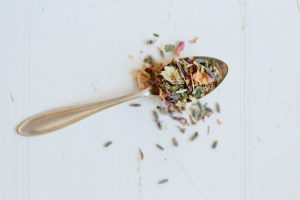The Naturopathic Co.

You're using an outdated browser. Please upgrade your browser to improve your experience.
Telomeres are the caps at the end of each strand of DNA that protect our chromosomes, and as we age, our telomeres shorten. Research has shown that people who closely follow a Mediterranean style diet have longer telomeres due to the high anti-inflammatory component of the diet, as well as higher antioxidant intake.
Certain types of food intake (processed food, sugars, trans fats etc) have been shown to accelerate telomere shortening, but there are also other lifestyle factors that play a part in health and aging by altering the rate of telomere shortening.
Stress is associated with release of cortisol hormones by the adrenal gland. These hormones have been shown to reduce the levels of antioxidant proteins therefore contribute to higher oxidative damage to DNA as well as accelerated telomere shortening. One study showed that women with higher chronic stress levels had evidence of increased oxidative pressure, reduced telomerase activity, and shorter telomeres relative to the women in the control group. In addition to this, the difference in telomere length in these two groups of women was equivalent to 10 years of life.
One study looked at telomere length in office workers versus traffic police officers exposed to traffic pollution. Exposure to pollution was indicated by the levels of toluene and benzene. The investigators found that telomere length in traffic police officers was shorter within each age group, relative to telomere length in office workers, as well as increased evidence of DNA damage and genetic instability.
A study showed that a diet containing antioxidant is associated with reduced rate of telomere shortening, whereas a lack of these antioxidants correlates with increased rate of telomere shortening, as antioxidants such as vitamin E, vitamin C, and beta-carotene reduce the rate of telomere shortening. Antioxidants can protect telomeric DNA from oxidative damage caused by free radicals.
Dietary restriction or eating less has a positive impact on health and longevity. Reducing food intake reduces oxidative burden and reduces damage to DNA as well as delays the onset of age-associated disease. The reduction in oxidative stress by dietary restriction preserves telomeres and other cellular components.
Telomere length correlates with dietary intake of fiber and is negatively associated with waist circumference and dietary intake of polyunsaturated fatty acids. Reduction in protein intake of food also seems to increase longevity in telomeres.
Smoking is associated with accelerated telomere shortening, and the dosage of cigarette smoking is shown to negatively correlate with telomere length. Interestingly, the telomeres in most cancer cells are shorter relative to normal cells.
Obesity is also associated with increased oxidative stress and DNA damage. Studies show that waist circumference and BMI correlate with biomarkers of DNA damage, independent of age.
Studies have demonstrated that duration of exercise inversely correlates with biomarkers for damage to DNA and telomeres. Exercise reduces harmful fat and helps to detoxify the body, leading to reduced oxidative stress and preservation of DNA and telomeres.
Yvette is a qualified Melbourne-based Naturopath and Nutritionist, MINDD Practitioner, member of the Naturopaths and Herbalists Association of Australia, and Complementary Medicine Association. Yvette specialises in the treatment of conditions commonly affecting women and children, with a key interest in children’s digestive and neurological conditions, as well as women’s hormonal concerns, digestive issues, fatigue, anxiety, and skin concerns. Yvette consults in South Yarra, Melbourne, as well as Australia-wide via skype/zoom/phone. Book here.
References
https://www.ncbi.nlm.nih.gov/pmc/articles/PMC3370421/
https://www.sciencedirect.com/science/article/abs/pii/S0968000402021102
http://citeseerx.ist.psu.edu/viewdoc/download?doi=10.1.1.604.5160&rep=rep1&type=pdf
Comments are closed.